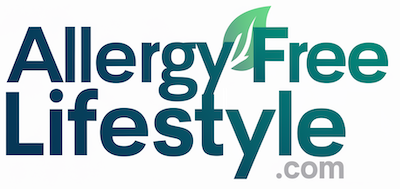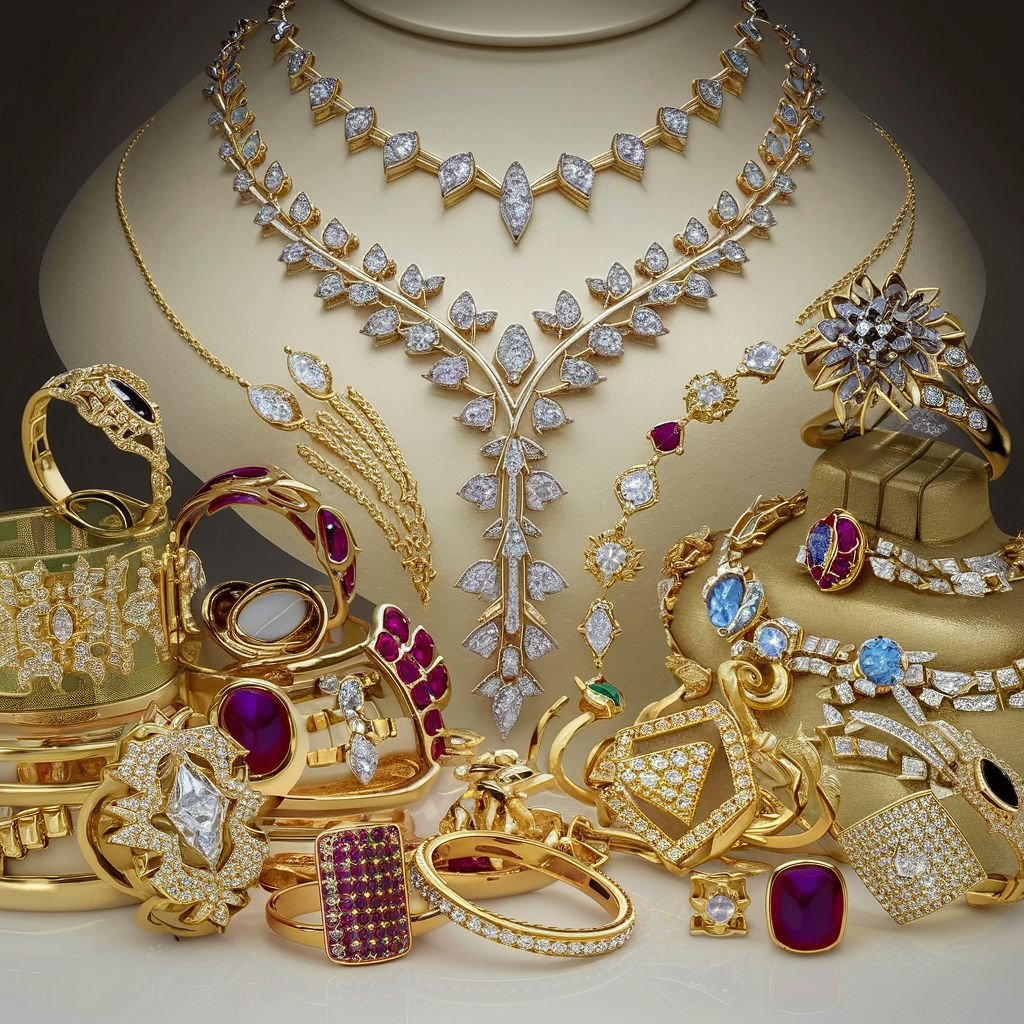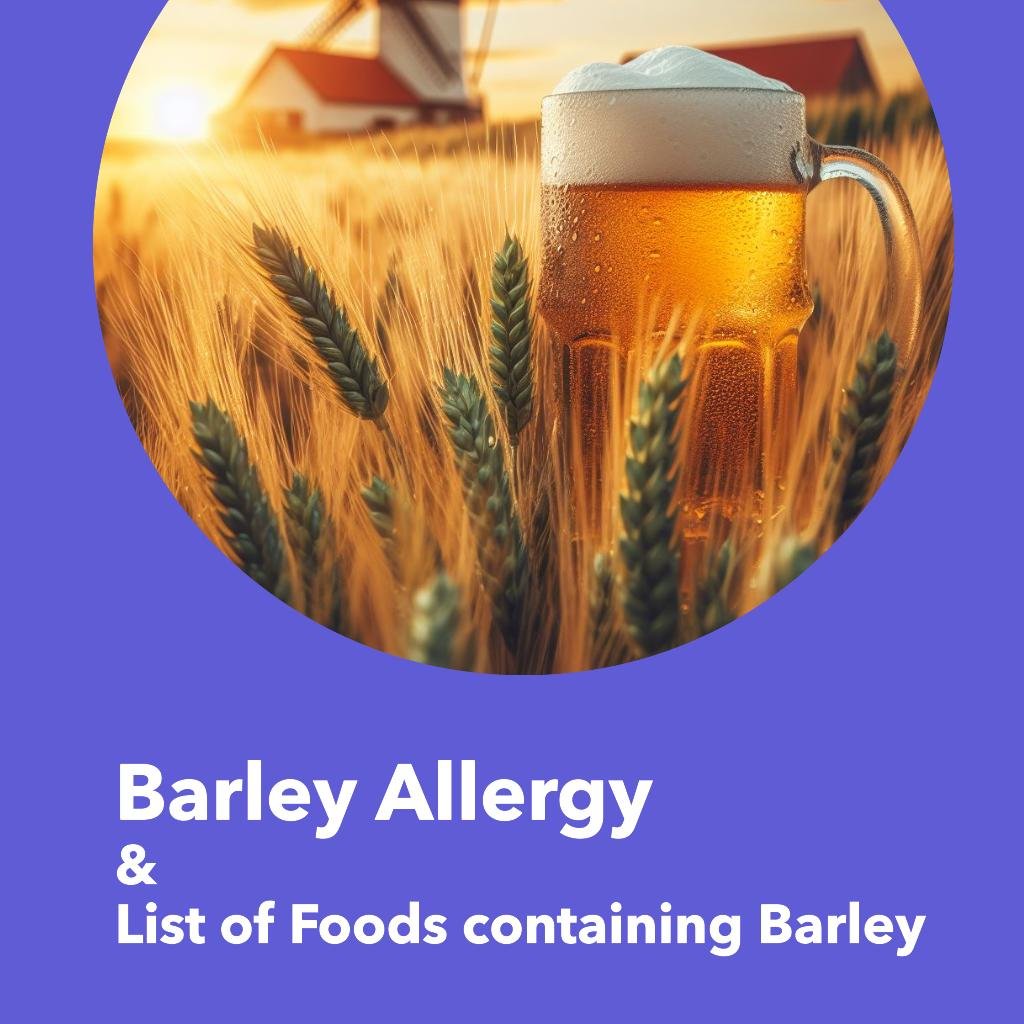Navigating dietary choices can be a complex journey for individuals with nickel sensitivity. Nickel, a common metal found naturally in the environment, foods, and water, can provoke allergic reactions in some people. While the impact of dietary nickel is more pronounced in those with a specific sensitivity or allergy, understanding which foods contain high levels of this metal can be crucial for maintaining health and wellness. Among the myriad dietary considerations for those affected by nickel sensitivity, one question often arises: “Is Coconut High in Nickel?” This article aims to address this query and provide a comprehensive list of foods known for their high nickel content, empowering individuals with nickel sensitivities to make informed dietary decisions.
Understanding Nickel in Diet
Nickel’s presence in the diet is inevitable due to its widespread occurrence in the soil and water, which translates into its absorption by plants and, subsequently, its entry into the food chain. For most people, dietary nickel does not pose a health risk. However, ingesting foods high in nickel can trigger dermatological and gastrointestinal symptoms for those with nickel sensitivity, ranging from skin rashes to digestive discomfort.
Is Coconut High in Nickel?
Regarding coconut and its nickel content, the news is generally positive for those concerned with nickel sensitivity. Coconut is not considered high in nickel and is deemed a safe option for individuals managing their nickel intake. This includes various coconut products, such as coconut milk, oil, flour, and water, commonly used in cooking and baking as alternatives to other high-nickel ingredients.
Unlike many nuts and seeds known to contain higher levels of nickel, coconut provides a versatile and nutritious option with minimal risk of exacerbating nickel sensitivity symptoms. This makes it a valuable ingredient for diversifying their diet without increasing their nickel exposure.
Massive List of Foods High in Nickel to Avoid
| High Nickel Foods | Moderate Nickel Foods | Low Nickel Foods |
|---|---|---|
| Whole wheat products | Bananas | Rice cakes |
| Soy and soy products | Pears | Maple syrup |
| Oats | Pineapple | Coconut water |
| Lentils | Herbal teas | Avocados |
| Peanuts | Garlic | Citrus fruits |
| Almonds | Coffee | Berries |
| Chocolate | Black tea | Chicken |
| Canned foods | Tomatoes | Fish (most types) |
| Leafy green vegetables | Root vegetables | Beef |
| Nuts and seeds | Onions | Pork products |
| Beer | Matcha | Cheese (most types) |
| Shellfish | Quinoa | Eggs |
| Processed meats | Sushi (w/o high-nickel ingredients) | Gelatin |
| Baking powder | Mushrooms | Honey |
| Licorice | Bagels | Carrots |
| Energy bars (with nuts, seeds, chocolate) | Canned Meats | Apples |
| Granola bars (with nuts, seeds, chocolate) | Energy Drinks | Potatoes |
| Instant noodles | Sauerkraut | Corn |
| Whole grains and cereals | Pickles | Salt |
| Legumes and nuts | Vinegar (some types) | Water (bottled/tap) |
| Vegetables (kale, spinach) | Breakfast cereals (some) | Dairy products (most) |
| Tea and coffee | Salad greens | Quiche (w/o high-nickel ingredients) |
| Dairy and dairy substitutes | Smoothies (w/o high-nickel ingredients) | Salad Dressings (w/o high-nickel ingredients) |
| Baked goods (with whole wheat/soy) | Dried fruits | Olive oil |
| Pasta (whole wheat) | Protein powders (some types) | Turmeric |
| Chocolate milk | Plant milks (rice-based) | |
| Margarine | Frozen vegetables | |
| Meat substitutes (soy-based) | Ice cream (w/o high-nickel ingredients) |
Q: Are whole wheat products high in nickel?
A: Yes, whole wheat and whole grain products are known to be high in nickel.
Q: Is soy high in nickel?
A: Yes, soy products, including tofu, soy milk, and soy sauce, tend to have high nickel content.
Q: Are oats high in nickel?
A: Yes, oats contain moderate to high levels of nickel, especially whole oats.
Q: Do lentils contain high amounts of nickel?
A: Yes, lentils, like other legumes, are high in nickel.
Q: Are peanuts high in nickel?
A: Yes, peanuts and peanut products are known to have high nickel content.
Q: Is chocolate high in nickel?
A: Yes, chocolate, particularly dark chocolate, is high in nickel.
Q: Are canned foods a source of high nickel?
A: Yes, canned foods can have higher nickel content due to the canning process and equipment used.
Q: Do leafy green vegetables contain nickel?
A: Yes, leafy greens like spinach and kale can be high in nickel.
Q: Are tea and coffee high in nickel?
A: Yes, both tea and coffee can contain high levels of nickel, depending on the soil they were grown in.
Q: Is beer a high nickel beverage?
A: Yes, beer, due to its brewing process and ingredients, can be high in nickel.
Q: Are wild nuts and seeds high in nickel?
A: Yes, many nuts and seeds, including almonds and sunflower seeds, are high in nickel.
Q: Can dairy products contain nickel?
A: While dairy products are not typically high in nickel, chocolate milk, and other flavored dairy products can be due to added ingredients.
Q: Are whole grains high in nickel?
A: Yes, besides whole wheat, other whole grains like rye and barley are high in nickel.
Q: Is seafood high in nickel?
A: Certain types of seafood, especially shellfish, can accumulate high levels of nickel.
Q: Do processed meats contain nickel?
A: Yes, processed meats can contain nickel due to additives and processing methods.
Q: Are fruits high in nickel?
A: Some fruits, like bananas and pineapples, may contain moderate amounts of nickel.
Q: Can vegetables be high in nickel?
A: Yes, besides leafy greens, other vegetables like onions and broccoli may also have high nickel content.
Q: Are baked goods high in nickel?
A: Yes, baked goods made with whole wheat or soy flour can be high in nickel.
Q: Is rice high in nickel?
A: Rice generally has lower nickel content compared to other grains.
Q: Are eggs high in nickel?
A: Eggs are considered to have low nickel content and are safe for most people with nickel sensitivity.
Continuing with the Q&A format to address more foods and their nickel content:
Q: Is corn high in nickel?
A: Corn is generally considered low in nickel, making it a safer choice for those with sensitivities.
Q: Are mushrooms high in nickel?
A: Mushrooms can accumulate nickel from the soil so that they may have higher levels of nickel.
Q: Is pasta high in nickel?
A: Pasta made from wheat, especially whole grain or durum wheat, can be high in nickel.
Q: Can spices and herbs be high in nickel?
A: Some spices and herbs may accumulate nickel from the soil, but typically in smaller amounts than other foods listed.
Q: Are tomatoes high in nickel?
A: Tomatoes and tomato-based products can have moderate levels of nickel.
Q: Is garlic high in nickel?
A: Garlic can contain nickel, though generally at lower levels than some other high-nickel foods.
Q: Are berries high in nickel?
A: Berries are typically considered low in nickel and are safe for most people with sensitivities.
Q: Can drinking water contain nickel?
A: The nickel content in water can vary depending on the source, with tap water potentially having higher levels due to pipes.
Q: Are energy bars high in nickel?
A: Many energy bars contain nuts, seeds, and whole grains, which can make them higher in nickel.
Q: Is quinoa high in nickel?
A: Quinoa is generally considered to have a lower nickel content than many other grains.
Q: Are root vegetables high in nickel?
A: Root vegetables like carrots and potatoes are typically low in nickel.
Q: Can sweeteners contain nickel?
A: Some sweeteners, especially those derived from corn or other plants, may contain trace amounts of nickel.
Q: Is vinegar high in nickel?
A: Vinegar can contain nickel, especially from cereals like barley.
Q: Are dairy alternatives high in nickel?
A: Dairy alternatives made from soy, almonds, or other high-nickel nuts and grains can be high in nickel.
Q: Is salad dressing high in nickel?
A: Some salad dressings, especially those with vinegar, spices, or soy ingredients, may be higher in nickel.
Q: Are canned fruits and vegetables high in nickel?
A: The canning process can introduce nickel, so canned fruits and vegetables might have higher nickel content than their fresh counterparts.
Q: Is chocolate milk high in nickel?
A: Yes, chocolate milk combines dairy with chocolate, which is high in nickel.
Q: Are snack bars high in nickel?
A: Snack bars that contain nuts, seeds, or chocolate can be high in nickel due to their ingredients.
Q: Can condiments contain nickel?
A: Condiments, especially those made with vinegar, spices, or soy, may have higher levels of nickel.
Q: Is popcorn high in nickel?
A: Popcorn is low in nickel, but additives or flavorings can increase its nickel content.
Q: Are citrus fruits high in nickel?
A: Citrus fruits are generally considered low in nickel and safe for individuals with nickel sensitivities.
Q: Is honey high in nickel?
A: Honey is typically low in nickel, making it a safer sweetener option for those concerned about nickel intake.
Q: Are avocados high in nickel?
A: Avocados are considered to have a low nickel content, which makes them a good choice for a low-nickel diet.
Q: Can bottled water contain nickel?
A: The nickel content in bottled water is usually very low, making it a safe choice for those with nickel sensitivities.
Q: Are breakfast cereals high in nickel?
A: Many breakfast cereals, especially those made from whole grains, can be high in nickel. Reading labels for specific ingredients is key.
Q: Is poultry high in nickel?
A: Poultry is generally low in nickel, making it a suitable protein source for individuals managing nickel intake.
Q: Are fish high in nickel?
A: Most fish are considered low in nickel, but certain types of fish may accumulate more nickel depending on their environment and diet.
Q: Is beef high in nickel?
A: Beef is typically low in nickel, which makes it a viable option for those on a low-nickel diet.
Q: Are pork products high in nickel?
A: Pork products are generally low in nickel, similar to other types of meat.
Q: Is cheese high in nickel?
A: Cheese is generally considered low in nickel, but processed cheeses may have additives that increase the nickel content.
Q: Are plant milks high in nickel?
A: Plant milk made from high-nickel sources like almonds or soy can have higher nickel levels. Rice milk is often a lower-nickel alternative.
Q: Is gelatin high in nickel?
A: Gelatin is low in nickel, making it a suitable option for those avoiding nickel.
Q: Are frozen vegetables high in nickel?
A: Frozen vegetables themselves are not high in nickel, but it’s important to check for added ingredients that might be.
Q: Can ice cream contain nickel?
A: Ice cream can contain nickel with chocolate, nuts, or other high-nickel ingredients.
Q: Are energy drinks high in nickel?
A: Energy drinks may contain nickel at low levels, but the added vitamins and minerals could contribute to a higher nickel content.
Q: Is alcohol high in nickel?
A: Certain alcoholic beverages, especially beer and wine, can have higher nickel content due to the brewing and fermentation processes.
Q: Are olives high in nickel?
A: Olives and olive products (like olive oil) are generally low in nickel.
Q: Is balsamic vinegar high in nickel?
A: Balsamic vinegar can contain nickel, especially if produced in nickel-containing equipment.
Q: Are pickles high in nickel?
A: Pickles can have nickel due to the vinegar used in the pickling process, though the levels are typically low.
Q: Is salt high in nickel?
A: Table salt and most sea salts are low in nickel, making them safe for those with nickel sensitivities.
Q: Are rice cakes high in nickel?
A: Rice cakes are generally low in nickel, making them a suitable snack option for individuals managing nickel sensitivity.
Q: Is maple syrup high in nickel?
A: Maple syrup is considered low in nickel and can be a safer sweetener option for those avoiding high-nickel foods.
Q: Are cashews high in nickel?
A: Yes, cashews, like many other nuts, are high in nickel and should be consumed cautiously by individuals with nickel sensitivities.
Q: Is matcha high in nickel?
A: Matcha, a type of green tea, can contain nickel, though typically at lower levels than some other tea leaves due to its distinct cultivation process.
Q: Are herbal teas high in nickel?
A: Herbal teas can vary in nickel content based on the herbs used. Some may be low in nickel, while others, depending on their source, could be higher.
Q: Is tofu high in nickel?
A: Yes, tofu is made from soybeans, which are high in nickel, making tofu a higher-nickel food.
Q: Are bagels high in nickel?
A: Bagels made from whole wheat or other high-nickel grains can contain significant amounts of nickel.
Q: Is coconut water high in nickel?
A: Coconut water is generally low in nickel, aligning with coconuts’ overall low nickel content.
Q: Are energy gels high in nickel?
A: Energy gels may contain trace amounts of nickel, primarily from the added vitamins and minerals.
Q: Is sauerkraut high in nickel?
A: Sauerkraut can have low to moderate nickel content, depending on the cabbage used and the fermentation process.
Q: Are granola bars high in nickel?
A: Granola bars that contain nuts, seeds, or chocolate may be higher in nickel due to these ingredients.
Q: Is quiche high in nickel?
A: Quiche can contain nickel with high-nickel ingredients like certain cheeses, spinach, or whole wheat crust.
Q: Are smoothies high in nickel?
A: Smoothies can vary greatly in nickel content based on their ingredients. Those made with low-nickel fruits and vegetables are generally safe.
Q: Is sushi high in nickel?
A: Sushi can be low in nickel, particularly those without high-nickel ingredients like certain fish or soy sauce.
Q: Are salad greens high in nickel?
A: Salad greens are generally low in nickel, but it’s wise to be cautious with dressings and added ingredients that may be high in nickel.
Q: Is turmeric high in nickel?
A: Turmeric can contain nickel, but typically at low levels, making it a relatively safe spice for most individuals with nickel sensitivities.
Q: Are instant noodles high in nickel?
A: Instant noodles can be high in nickel, especially if they are made from wheat or have flavorings and additives.
Q: Is zucchini high in nickel?
A: Zucchini is generally considered low in nickel and is safe for those with nickel sensitivities.
Q: Are protein powders high in nickel?
A: Protein powders can vary in nickel content based on their ingredients. Those made from peas, soy, or nuts may have higher nickel levels.
Q: Are dried fruits high in nickel?
A: Dried fruits can concentrate nickel from the soil, potentially higher in nickel than their fresh counterparts.
Managing Nickel Intake
Managing nickel intake requires a multifaceted approach, focusing on dietary adjustments, awareness of hidden nickel sources, and strategies for minimizing exposure. Here are actionable tips for individuals with nickel sensitivity:
- Opt for Nickel-Safe Foods: Prioritize low-nickel foods such as rice, corn, apples, and carrots. Incorporate these into your diet as the foundation of your meals.
- Read Food Labels Carefully: Always check the ingredient list for hidden sources of nickel. This includes additives, colorings, and flavorings that might contain nickel.
- Prepare Meals at Home: Cooking at home allows you to control the ingredients and avoid cross-contamination with high-nickel foods.
- Use Stainless Steel Cookware: Some stainless steel cookware is generally considered safe (see Best Selection of Nickel-free Cookware Pots & Pans) for those with nickel allergies, as nickel leaching is minimal. However, using glass or ceramic cookware may be preferable for those with severe allergies.
- Limit Processed and Canned Foods: These often contain additives or are processed in ways that can increase their nickel content. Opt for fresh, whole foods whenever possible.
- Be Cautious with Supplements: Some vitamin and mineral supplements may contain nickel. Discuss which supplements are safe for you with your healthcare provider.
- Stay Hydrated with Safe Water: Tap water nickel content can vary depending on the pipes. Consider using filtered water to reduce your nickel intake.
- Monitor Your Body’s Response: Keep a food diary to track what you eat and any symptoms you experience. This can help identify specific foods that trigger your nickel allergy symptoms.
Conclusion
Navigating a diet with nickel sensitivity demands vigilance and awareness but is manageable with the right knowledge and strategies. Individuals with nickel sensitivity can significantly reduce their exposure and the risk of allergic reactions by focusing on low-nickel foods, preparing meals at home, and being cautious with potential hidden nickel sources.
Remember, each person’s sensitivity level can vary, so what works for one individual may not work for another. Consulting with a healthcare professional specialized in allergies can provide personalized guidance and support.
FAQs
Can cooking methods reduce nickel content in foods?
While cooking methods cannot significantly reduce the nickel content of foods, choosing the right cookware and avoiding nickel-plated utensils can minimize additional nickel exposure.
Are organic foods lower in nickel?
Organic foods are not necessarily lower in nickel, as nickel content is more about soil and environmental conditions than agricultural practices. However, organic foods reduce exposure to other allergens and chemicals.
Can a nickel allergy improve over time?
For some individuals, nickel sensitivity may decrease with strict dietary management and avoidance of high-nickel foods. However, it’s important to continue monitoring and managing intake, as sensitivity levels can fluctuate.



